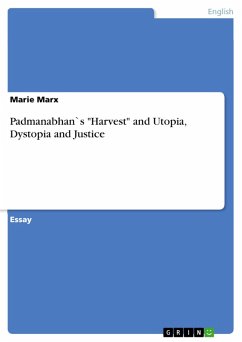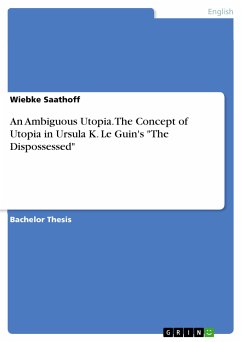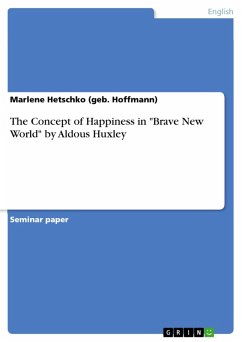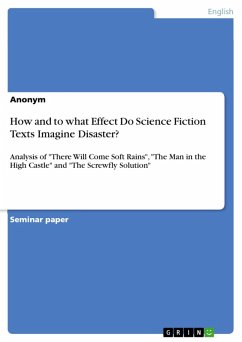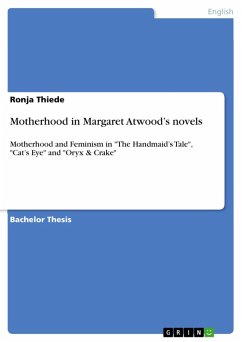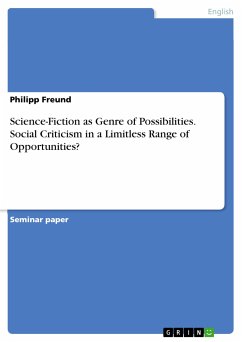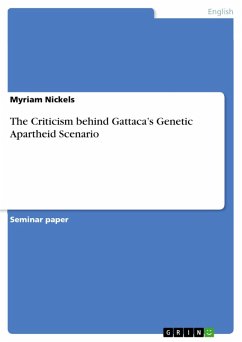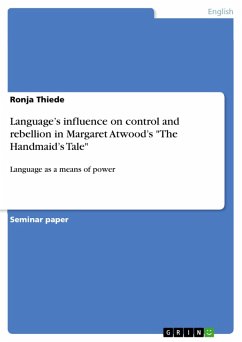Essay from the year 2015 in the subject English Language and Literature Studies - Literature, grade: 2,0, University of Potsdam (Institut für Anglistik und Amerikanistik), course: Utopia, Dystopia, Justice, language: English, abstract: This essay has two aims: to explain both utopian conceptions made by Jameson and to discuss in how far these aspects of utopia appear in the futuristic play "Harvest" by Manjula Padmanabhan. Supported by fictional political and social arrangements, Padmanabhan criticizes 'roots of all evil' like unemployment and up-to-date global trade relations between the Third World and the West in her play "Harvest". Fredric Jameson distinguishes in the essay "The Politics of Utopia" between two utopian perspectives: the 'root of all evil' and 'the political and social arrangements'. Jameson, born 1934, is considered to be one of the foremost contemporary Marxist literary and cultural critics writing in English. In his article he says that 'utopian' has come to be a code word on the left for socialism or communism and on the right for 'totalitarianism'. Both politics wish to change the system.
Dieser Download kann aus rechtlichen Gründen nur mit Rechnungsadresse in A, B, BG, CY, CZ, D, DK, EW, E, FIN, F, GR, HR, H, IRL, I, LT, L, LR, M, NL, PL, P, R, S, SLO, SK ausgeliefert werden.

